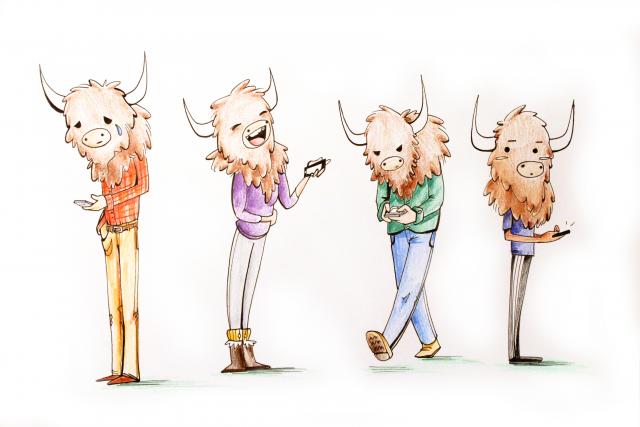![]()
Controversy has come to campus again, this time in the form of an app called Yik Yak.
Yik Yak is a social media app that allows users to post brief messages completely anonymously. Users can see Yaks posted in their immediate geographical area, making the app popular on high school and college campuses. At John Brown University, Yik Yak is gaining popularity.
“The point of Yik Yak is to share parts of our lives that we can all relate to, because we’re all sort of living in this bubble together,” said senior Kaitlyn Thompson.
Thompson uses Yik Yak in her spare time, and is the author of many popular “yaks,” such as, “Dr. Pollard needs to form a crime fighting duo with a fish. Then they can be Fish and Chip.”
Although the app has the potential to be a lot of fun, some staff and faculty are expressing concern with its misuse.
“I became significantly concerned with the app after the immigration conference,” said Andrew Lehr, resident director of Walker Hall. After hearing about problems from other colleges with bullying and harassment on Yik Yak, Lehr started looking at the app regularly, and wasn’t pleased with what he saw.
After the immigration conference, yaks began to appear using racial slurs against Hispanic students and telling students in the Walton International Scholars Program go back to their home countries.
Such yaks continued after the chapel on racism on Nov. 13, featuring Vincent Bacote of Wheaton College. There have also been disparaging remarks on the sexuality of women at the University, several crossing into the territory of sexual harassment. One such yak reads, “I’m way overdue to f*** a 19 year old.” (Censored at the request of the editor.)
Lehr and other members of the student development staff are still discussing what to do about the app. Students have come to them feeling harassed, bullied and unwelcome.
“I don’t see the value in spending the campus’ bandwidth on [Yik Yak],” said Lehr. “It serves no purpose.”
Discussions are still underway as to whether the app will be banned or not.
“We still don’t know if we’re going to block it, but the challenge is students will just use their data plans,” said Steve Beers, vice president of student development.
“I wouldn’t blame them if they did block it,” said junior Sara Whitlock, an occasional Yik Yak user. However, she added, “It might solve a temporary problem of saving the university’s image, but it wouldn’t solve the root problem.”
There is a way for Yik Yak users to police each other on the app. Yaks can be “upvoted” or “downvoted” by other users, and a yak with five downvotes is permanently deleted.
Hurtful comments aren’t always downvoted, but it is possible for other users to make harmful yaks disappear.
“Students need to step up and change the peer culture so that comments like this are unacceptable,” said Lehr.
Thompson agreed.
“You have a responsibility to put on clothes when you walk out your front door,” she said. “You have a responsibility to purport yourself as a decent human being in a public place, whether that’s online or downtown.”
Some students see Yik Yak as an opportunity rather than a problem.
“We should engage with it,” said senior Josh McBride, a regular Yik Yak user. “God has afforded us the opportunity to speak truth into an area where truth is not well-received.”
McBride said he would be disappointed in student development if Yik Yak were banned.
On Nov. 20, Rod Reed, university chaplain, spoke in chapel about the necessity for Christians to act in a loving matter no matter where they are. Reed challenged students to literally stand up with those who were feeling bullied. Lehr reiterated his message.
“The larger issue is that we want to be a community that’s known, and you can’t know each other through an anonymous app,” Lehr said. “More than banning the app, I think an attitude needs to change.”





